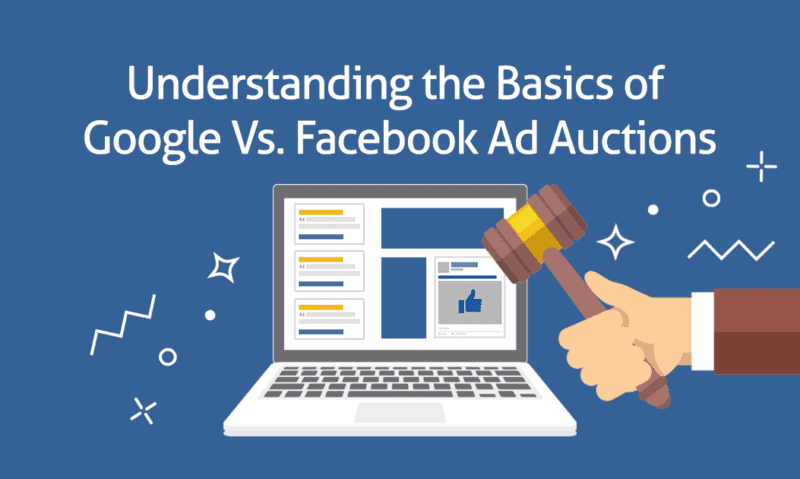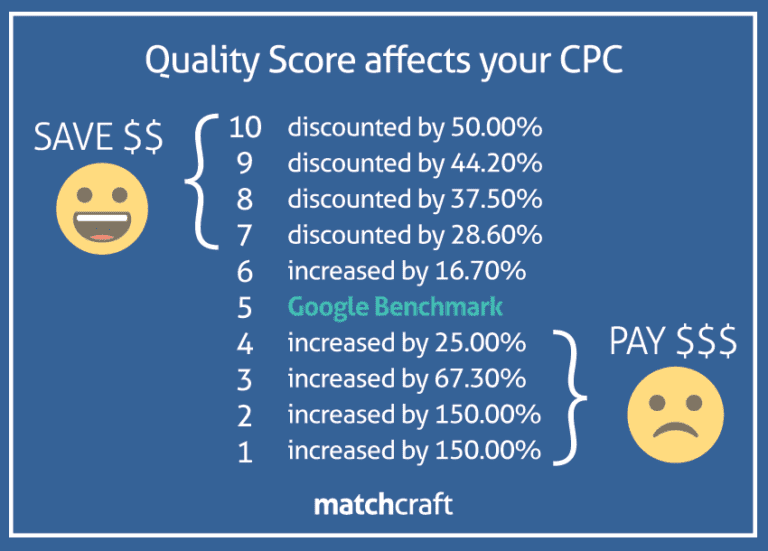So, you may consider yourself pretty darn savvy when it comes to Google Ads. But what about Facebook ads?
Compared to Google ad auctions, Facebook Ads have remained a bit of a mystery to many digital marketers. At a glance, the two platforms appear somewhat identical but when it comes to campaign execution, things aren’t so alike.
Read on for an explainer on the differences between the two ad auctions.
Contrasting Bidding Processes
You may be used to checking the keywords planner tool in Google to get a feel for how much to bid for your desired keywords. But with Facebook, things are a bit (a lot) more up in the air.
Advertisers run the gamut in what they’re going for – as far as audience, their budget, and even their goal for the ad.
Given all this complexity, Facebook does not currently offer a tool like a keyword planner. The result? Auto-bidding. This means Facebook takes the wheel and determines the cost per action.
Within Google, you may be used to taking a manual approach to your budget, an effort on your part to retain as much control as possible. That’s not possible within Facebook.
But take note: both companies are working hard to leverage the power of machine learning to automate their platforms as much as possible, which will hopefully lead to even more precision in the future—precision that could save you a significant part of your budget.
Quality of Your Ads
Quality is important, and both Facebook and Google will agree on that.
Both companies are dedicated to providing the best user experience; both companies are quite particular about ad quality and style. They want to drive an exceptional user experience for their users.
If you’re familiar with Google Ads, then you should have a pretty good idea on the type of quality Facebook is seeking, too. Ads on both platforms get assigned a score, ranging from 1 to 10, that speaks to the relevance of the ad. This score is determined based on your ad’s click-through rate.
Knowing this, it’s easy to get sucked into a click-through rate fixation. But remember, conversion counts just as much, if not more.
New Ad Rank Formula
Ah, the elusive ad rank. This variable is where you’ll see some clear differences between the two platforms.
To determine your ad rank, Facebook evaluates three factors whereas Google looks at two. The third factor that Facebook looks at is called Estimated Action Rate.
Estimated Action Rates determine how likely a person is to act on your ad. When deciding whether to show your ad to a person in your target audience, Facebook estimates the likelihood of a person taking the action your ad has been optimized for.
To help us make our estimations as accurate as possible, we recommend setting your budget and bid high enough to get at least a few of the results you want per day (especially for results that take place off-site like website conversions and mobile app events). —Facebook
This exists with Facebook Ads, since users can choose their objective, which then allows Facebook to help hone in on a best-fit audience. Once you tell Facebook an objective, it will optimize your ad. And it will continue to run it until it cannot do so any longer. It stops (and you stop paying).
However, here’s the deal with Google. Google’s ad platform ignores conversions.
Your ad will continue to run (and you’ll continue to get charged). In this case, the ball is in your court to track conversions and to watch your campaign carefully to see how things unfold. (Pssst! You can hire experts to do that for you!)
The Verdict
Okay, so what we’re working with are two completely different ad auction platforms. Sure, they look quite similar but as you can see here, they are not.
Ads may perform differently for different types of businesses, and there may be benefits to advertising on both platforms even if you aren’t doing a touchdown dance over your ad performance.
But what this does mean is that partnering with an expert may make sense as you navigate these complexities. We’re here to help.


